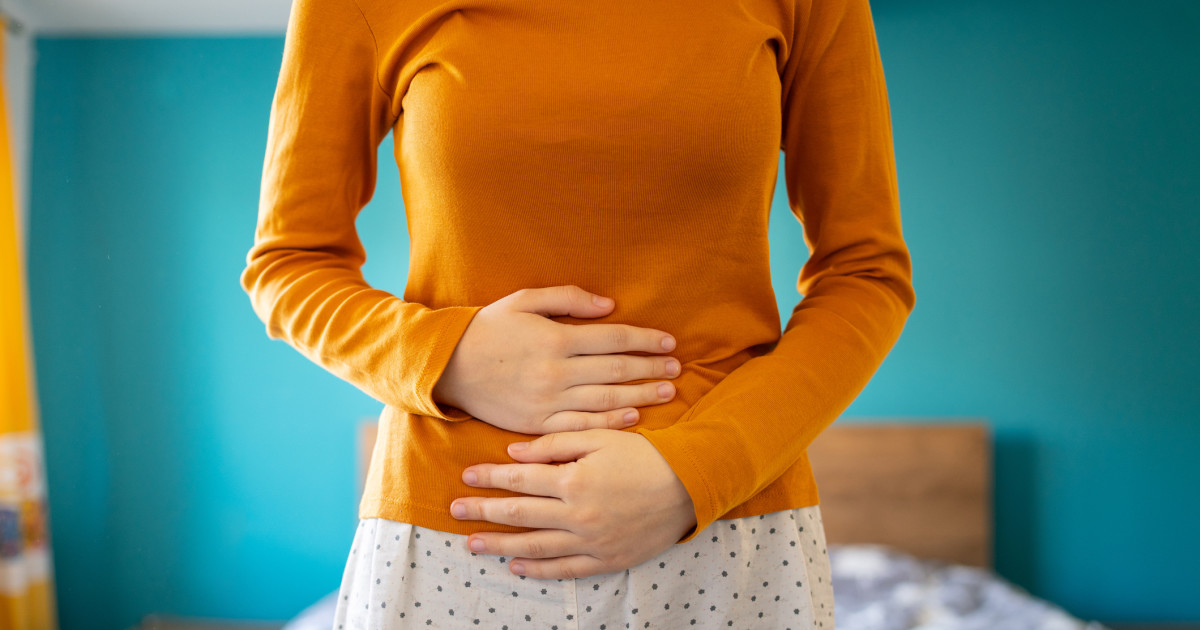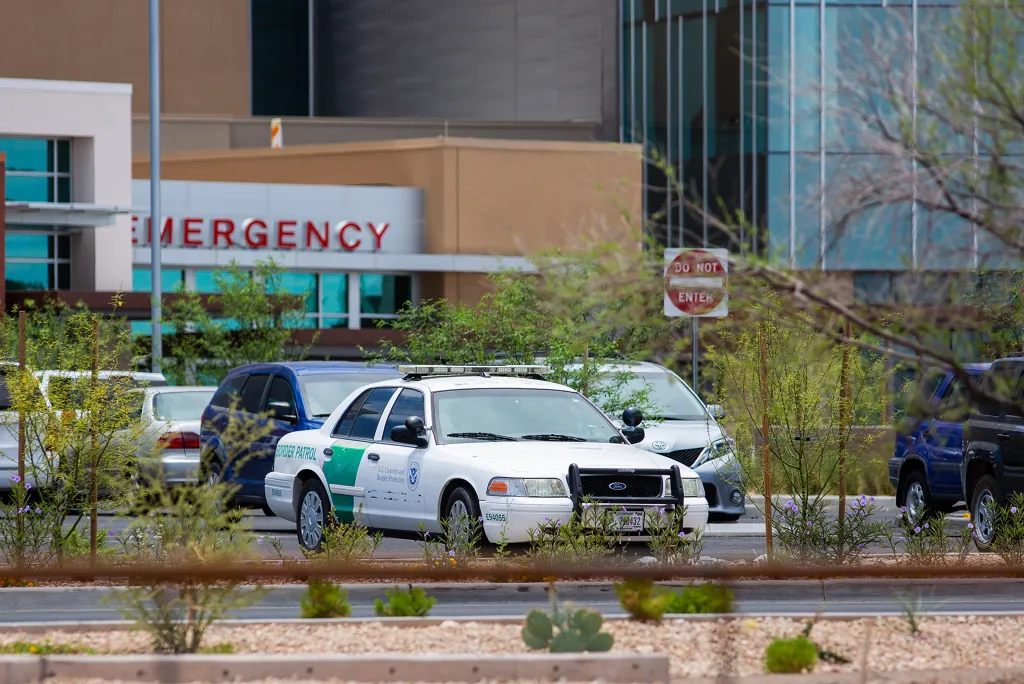Copyright Parade

A “digestif” or a post-dinner beverage is something that spans cultures. It can extend a special meal, leading to more time with friends and family. One gastroenterologist dishes that a digestif can also literally help you digest your food, as the name may imply. “After a large meal, someone may experience bloating, sluggishness or indigestion [and want a] way to stimulate digestion and ease discomfort,” shares Dr. Aditi Stanton, MD, a board-certified gastroenterologist with Gastro Health. “A post-meal drink can soothe the GI tract, promote relaxation and help jumpstart the digestive process to relieve these symptoms.” Of course, it depends on what you sip. Digestif menus at restaurants are often filled with dessert wines, cocktails, liqueurs and caffeinated beverages like cappuccinos. However, doctors and dietitians suggest you opt for an unheralded option instead if you’re looking to avoid or ease post-meal stomach issues. They shared the after-dinner drink that can help you with digestion, how much to drink and other ways to improve your “gut feeling” after eating. 🩺SIGN UP for Parade’s health newsletter with expert-approved tips, healthy eats, exercises, news & more to help you stay healthy & feel your best self💊 The After-Dinner Drink That Can Help Digestion, Gut Health Experts Say Peppermint tea is an overlooked rockstar for your digestive system. “Peppermint, in general, is what we call a carminative—basically, it helps you expel gas,” says Dr. Brynna Connor, MD, a healthcare ambassador at NorthWestPharmacy.com. Drs. Connor and Stanton credit certain compounds in peppermint for its near-immediate digestive health benefits. “It contains compounds such as menthol, menthone and limonene, which can help relax intestinal muscles and reduce spasms, bloating and cramping,” Dr. Stanton says. “Concentrated peppermint oil has been studied clinically and shown to ease symptoms of irritable bowel syndrome, decreasing pain and improving bowel habits. Peppermint tea can offer similar, though milder, benefits.” The digestive benefits of peppermint tea go beyond its composition, though. “The warmth and aroma can have a soothing effect on the nervous system, encouraging the body’s natural ‘rest and digest’ response,” shares Kathleen Benson, CSSD, CPT, RDN, a registered dietitian at VNutrition. Dr. Connor echoes these sentiments. “It’s a ritual,” she says. “The act of slowing down to sip a warm liquid can have a calming effect on the whole system.” Amanda Sauceda, MS, RD, the owner of The Mindful Gut, even loves resting her peppermint tea cup on her stomach when she’s feeling a bit bloated after dinner. “The nice thing about peppermint tea is that it’s accessible, lower cost and risk, making it a nice option when you’re not feeling well,” she says. Related: Here’s Exactly How Much Fiber To Eat Each Day To Improve Your Gut Health—and How To Get It How Often Should I Drink Peppermint Tea for Digestion? “For everyday use, one to two cups of peppermint tea made from leaves is plenty to get mild digestive benefits,” Benson notes. That said, she and Sauceda report that it’s hard to say for sure how much peppermint tea is needed to relieve digestive pain because the research on the two together is limited. Wait, what? OK—It might help to understand what the research does look at, and how it differs from the peppermint tea you might pick up at the grocery store. Most of the peppermint products used in the studies on digestive benefits were oil. “For that reason, we unfortunately don’t have a standard dose of peppermint tea to have after a meal,” Sauceda explains. What’s the difference? “Peppermint tea is an infusion,” Dr. Connor clarifies. “The amount of active menthol you get is relatively low and varies wildly depending on the brand, how much tea you use and how long you steep it. It’s a mild intervention—fine for mild, occasional bloating.” She describes the peppermint oil capsules researchers—and people with IBS—use as “a different beast entirely.” “These are designed to survive the stomach acid and dissolve lower down in the intestines, delivering a much higher, standardized dose of peppermint oil right where it’s needed to stop spasms,” Dr. Connor explains. “You can’t drink enough peppermint tea to replicate the effect of one of those capsules. For simple, post-dinner discomfort, a cup of tea is fine. For a medical condition, you need a medical-grade product.” Related: Want to Lower Your Cholesterol and Improve Heart Health? Tea Can Help—Here Are the Best Types to Stock Up On Other Benefits of Peppermint Tea Peppermint tea may have some benefits beyond helping with digestion. Benson reports that these additional perks of peppermint tea might include: Though naturally caffeine-free, some people may find the smell of menthol mildly energizing. Fresher breath Support relaxation Reduce tension headaches (for some) Gently reducing milk supply during weaning from breastfeeding Fewer sugar cravings and lower added sugar intake (“It offers a pleasant, slightly sweet flavor on its own,” Benson shares.) It may even help you clear up a stuffy nose. “Menthol is a well-known decongestant,” Dr. Connor adds. “The simple act of breathing in the steam from a hot cup can help open up the sinuses.” Related: 10 Weird Ways Your Body Tells You That You Need More Fiber, According to Registered Dietitians Who Should Avoid Peppermint Tea? Peppermint tea is a generally safe way to soothe mild post-dinner stomach discomfort. Yet, this supper isn’t for everyone. “My biggest warning is for people with acid reflux—GERD—or a hiatal hernia,” Dr. Connor states. “Since it relaxes smooth muscle, which also includes the lower esophageal sphincter.” Dr. Connor says the esophageal sphincter is like a muscular lid that keeps the acid in your stomach. “If you relax that lid, you’re essentially inviting stomach acid to splash back up into your esophagus, which is the very definition of heartburn,” Dr. Connor explains. For some, peppermint tea can make that (unwanted) splash. Benson adds that there’s some mixed evidence suggesting that peppermint tea may reduce milk supply in breastfeeding parents. “It’s best to avoid or limit it if that’s a concern,” Benson says. “Those with gallbladder issues or very young children should also be cautious, and anyone sensitive to peppermint should, of course, skip it.” 5 Other Tips To Support Digestion Peppermint tea is one way to soothe digestive discomfort, but dietitians and doctors say that there are a few others—including another clutch drink. From the benefits of getting a move on to the surprising post-meal habit that may be hindering digestion, here are other ways to avoid bloat after eating. 1. Chew thoroughly Digestion doesn’t begin after your last bite. “Digestion starts in the mouth,” Dr. Stanton points out. “Chewing food well enhances mechanical digestion and allows the brain-gut axis time to signal fullness, which helps prevent overeating.” 2. Get moving The TikTok influencers who coined the term “fart walk” were onto something. “Go for a short walk—even 10 minutes,” Benson recommends. “Gentle movement helps stimulate digestion and can reduce post-meal bloating or heaviness.” Not down for a stroll? She suggests light stretching and breathing exercises instead. “These help the body transition into a calm, parasympathetic ‘rest-and-digest’ state.” 3. Avoid lying down Sauceda urges people to avoid the understandable temptation to lie down after a meal. “Even if you could digest your food upside down, why would you want your gut to work harder than it needs to? Staying upright is better for your digestive system and is also helpful if you’re prone to acid reflux.” 4. Try a warm compress No teacup? No problem. “If you’ve had a very large meal and are feeling stuffed, then consider a warm compress,” Sauceda suggests. “Something warm on your stomach can be helpful for easing any discomfort you may be feeling.” As a bonus, she says, you can apply a warm compress and then go for a short walk afterward. 5. Drink plain water Circling back to after-dinner drink menus: They’re full of digestifs that don’t support digestion. “Skip the alcohol and skip the soda,” Dr. Connor says. “Alcohol is an irritant to the stomach lining. Carbonated drinks pump you full of the very gas you’re trying to get rid of.” Instead, refill the H2O. “Water is necessary for breaking down food and for moving fiber through the gut,” Dr. Connor says. “It’s simple, it’s free, and it works.” Up Next: Sources:



